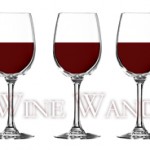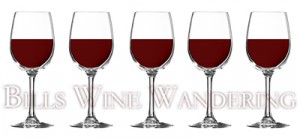
The second part of the tasting notes is Smell (in wine country, called “the nose”). I find smell is an interesting sense and I have found times it can trick me! To solve this, I have purchased a kit from LE NEZ DU VIN. For more information read my blog article discussing the Sensory Kit. Since I have bought the kit I do find myself identifying the various aromas a wine has to offer. It has been quite entertaining and fulfilling.
The Smell section of my tasting notes has three sections.
Aroma Intensity
There are three aroma developments to a wine. The first is called “Primary Aroma”. The primary aroma is created by the fruit of the grape. This would be prior to the grape being harvested while it remains on the vine. Some of the aromas you may detect are vegetable, spicy, floral and/or fruity notes.
The second called Secondary Aroma is the creation of the grape being harvested, crushed and is now fermenting and “getting happy”. Some of the aromas may be lychee, melon, apple, pear, walnut, honey depending on the varietal.
The final called Tertiary (TER-SHE-AIRY) Aromas are created when the wine is left to mature in the barrel. As the wine in the barrel matures the aroma transformation continues to mature. Some of the aromas you will note are prune, mushroom, truffle, cedar, musk, toast, caramel, coffee and others like these.
The wine aroma intensity is the most intriguing and passion creating moments when you first smell the wine. How many times have you first smelled that wine in a glass and just hummed. Many of my friends will relate to locations or special events while smelling the wine.
So as you take your initial smells, do not overwhelm your nose. Breathe for a few seconds, back off for a few and try again. You can easily saturate your membranes for which you will not smell anything. As you smell the wine take note of how its intensity is. Take your time smelling the wine. It will develop as it warms up and as it being exposed to oxygen.
Development
I think of the thee categories this might me the toughest or possibly the easiest. I believe the very first time you smell the wine you will have an idea how you feel about it. Generally a younger wine will smell “youthful-fruity”. As the wine matures in the bottle they will exhibit a middle aged or a “flower bouquet” to it. Older, or aged wines tend to have an “earthy” note. I personally feel if the wine smells old it probably is and most people will not like it. If the wine smells like a wet dog or wet cardboard box it could be corked.
There are another aromas you prefer not to smell in your glass. The following link is pretty descriptive.
The Six Aromas You Don’t Want to Smell in Your Wine.
Aromas
Although this is pretty descriptive, I recommend that you simply write down what you smell. If you are not sure what you smell, start Google searching your favorite varietal and see what flavors most others smell. Don’t be afraid if you don’t sense the same things. You are never “wrong”. It is just what you think you smell! Practice, practice, practice…
Cheers!
Facebook.com/BillsWineWandering
Twitter: @BillswineWander

